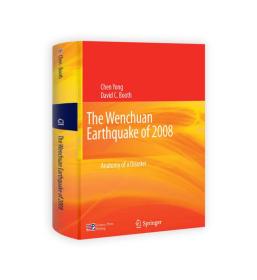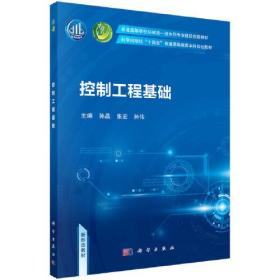
2008汶川大地震:一场灾难的纪实(英文版)
¥ 43.01 2.4折 ¥ 180 九品
仅1件
北京昌平
认证卖家担保交易快速发货售后保障
作者Chen、David C.Booth 著
出版社科学出版社
出版时间2011-01
版次1
装帧精装
货号A17
上书时间2024-11-17
- 在售商品 暂无
- 平均发货时间 15小时
- 好评率 暂无
- 最新上架
商品详情
- 品相描述:九品
图书标准信息
- 作者 Chen、David C.Booth 著
- 出版社 科学出版社
- 出版时间 2011-01
- 版次 1
- ISBN 9787030307842
- 定价 180.00元
- 装帧 精装
- 开本 16开
- 纸张 铜版纸
- 页数 276页
- 【内容简介】
-
The Wenchuan Earthquake of 2008 Anatomy of a Disaster gives a detailed account of the damage, seismology and tectonics of the event and discusses earthquake prediction, seismic hazard and risk management, the creation and implementation of building codes, and new practices used in rescue,relief and reconstruction. It will be of significant interest to researchers and practitioners engaged in seismology, geophysics, engineering, the social sciences, and disaster management and recovery. It also offers a valuable new and unique Chinese perspective with many insights for future mitigation of earthquake risk.
- 【目录】
-
1 The Wenchuan earthquake
1.1 Intensity map and damage distribution
Intensity map
Intensity XI and X zones
Strong motion records
General trend of earthquake damage
1.2 Death toll and economic losses
Demography and death toll
GDP losses
Hardest hit area
"Quick and approximate" estimation of casualties
1.3 Earthquake damage to buildings
Damage to buildings according to structural type
Damage to buildings according to age
Damage to buildings according to use
Lessons learned
1.4 Earthquake damage to lifelines
Transportation
Railway systems
Electricity, water supply, sewage and telecommunication
"Quake lakes"
1.5 Secondary disasters: landslides and rock falls
Geomorphology of Wenchuan region
Giant landslides
Mud flows
Rock falls
References
2 Seismological features
2.1 Seismic source parameters for the mainshock
Source parameters
Focal mechanism
Rupture process
Co-seismic deformation
2.2 Historical earthquakes and aftershocks
Historical earthquakes
Aftershoeks
2.3 Geophysical investigations before the earthquake
North-South seismic belt
Bouguer gravity anomalies
Crustal thickness
Low-velocity zones
2.4 Tectonic setting of Wenchuan earthquake
Tibetan Plateau
Longmenshan
An intracontinental thrust fault
Weak crustal layer
2.5 Seismic waves generated by earthquake
Seismic waves circle the Earth
Ground motion felt at Beijing
Comparison with waves generated by Tangshan earthquake
of 1976
References
3 Prediction efforts prior to the Wenchuan earthquake
3.1 Earthquake monitoring system in China
National earthquake monitoring network
Other geophysical observations
Data processing and analysis procedures
3.2 Prediction efforts prior to the Wenchuan earthquake
Seismic network of 300 seismometers
Big shock, small GPS displacement
Seismicity pattern
Precursor anomalies
3.3 Development of earthquake prediction research in China
Severe earthquake disasters in China
Organized efforts for earthquake prediction (1966)
China Earthquake Administration (CEA)
Haicheng earthquake prediction
Earthquake Act
3.4 Future prospects for earthquake prediction
Realistic public expectation of earthquake prediction
Why is the prediction effort so persistent?
From prediction to mitigation
References
4 Seismic hazard and risk asessment
4.1 Seismic hazard assessment
1957--First intensity zoning map of China
1977 intensity zoning map of China
1990 intensity zoning map of China
2001--Latest hazard map of China
4.2 Building code
Building code (TJ11-78)--effective 1979-1990
Building code (GBJ11-89)--effective 1991-2001
Building code (GB50011-2001)
Importance of complying with the seismic design code
4.3 Risk management
Quantification of disaster
Fortification standards should be increased
Earthquake-safe Rural Housing'Demonstrations
4.4 Did the reservoir impoundment trigger the Wenchuan
earthquake?
References
5 Emergency response and resscue
5.1 People-oriented rescue principle
Immediate top level government response
So long as there was hope, they would never give up
Respect for life
5.2 Open and transparent relief information
Timely, open and transparent information
International relief
Rescue efforts
5.3 The breadth and diversity of donors
Donations from countries and regions
Donations from NGOs
The breadth and diversity of donors
5.4 Voluntary contributions
An individual voluntary response
Rewards of voluntary work
Medical volunteers
Importance of psychological assistance
References
6 Reconstruction of Wenchuan
6.1 Outline of reconstruction
Overall planning
Reconstruction objectives
Reconstruction funds
6.2 Counterpart assistance
New mechanism of post-earthquake reconstruction
Prom counterpart assistance to counterpart cooperation
6.3 Solid schools, sweet hopes
Schools in reconstruction
Hospitals and other public facilities
6.4 New Wenchuan after the earthquake
All be housed
Life goes on
The main lessons of the earthquake
References
Appendices
Appendix 1 Significant events of Wenchuan earthquake
Appendix 2 Wenchuan earthquake sequence catalog
Appendix 3 Law of the People's Republic of China on Protecting
Against and Mitigating Earthquake Disasters
Appendix 4 The Overall Planning for Post-Wenchuan Earthquake
Restoration and Reconstruction (Extracts)
点击展开
点击收起
相关推荐
— 没有更多了 —



















以下为对购买帮助不大的评价